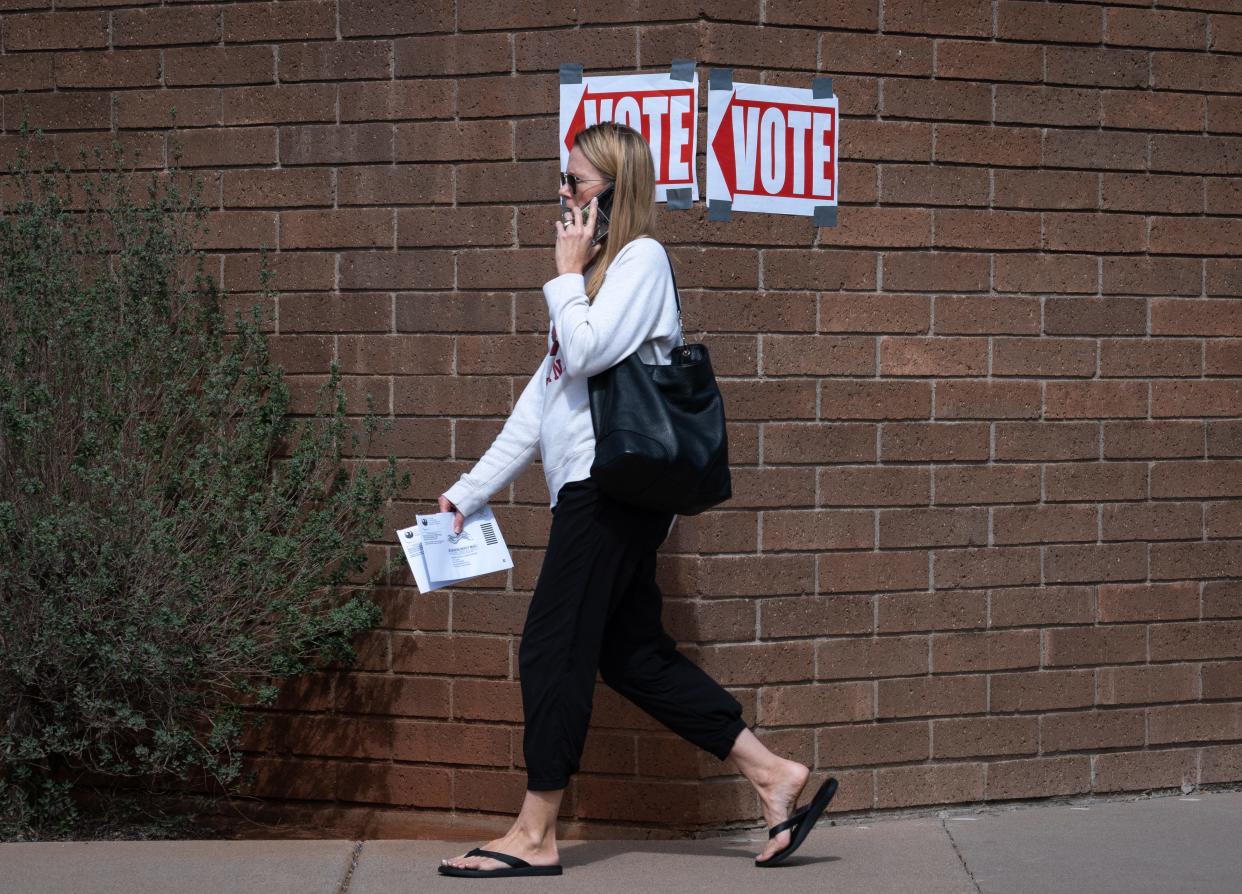Phoenix runoff election is a mess, but there's no good way to fix it

The runoff election in Phoenix City Council districts 6 and 8 on Tuesday fell short of satisfying.
It has little to do with the winners of the races, Kevin Robinson and Kesha Hodge Washington.
The dissatisfaction lies in the election structure itself, for which there are a couple of potential fixes that aren’t much better.
About 49,000 people – about 28% of eligible voters in District 6 and some 16% in District 8 – cast a ballot on Tuesday. About 97,000 cast one in the Nov. 8 general election.
Framed another way, twice as many voters determined the finalists for the runoffs than the actual winners. Not the optimal way to elect a representative.
Phoenix can do different, but better is another thing.
Option 1: Change when elections occur
To its credit, the city took a huge step forward in 2018, when voters amended the city charter and changed from holding municipal elections in odd-numbered years to even-numbered years. Turnout vastly improved.
But in doing so, Phoenix switched its elections from August to November. Which works beautifully when the top vote-getter of a race garners more than 50% of the vote to win outright.
When that doesn’t happen, however, a runoff to determine the victor now occurs in March, rather than November – when general elections are held for state and federal offices and draw the bigger turnout.
The winners:Robinson, Hodge Washington celebrate election results
The cleanest solution, of course, is for Phoenix to align its election schedule with state and federal elections, so the mayor and council elections would be in August and runoffs, when necessary, in November.
But that approach is arguably the tail wagging the dog.
Having a larger turnout to determine winners rather than finalists makes sense. But only about 30% of Phoenix’s elections over a 20-year period have resulted in a runoff – Kate Gallego first won the mayor seat in a runoff just four years ago.
Holding city elections in August has its own shortcomings. Turnout for statewide August primary elections are only a few percentage points higher than past August city elections in odd years.
More of a pain to solve are independent voters. Phoenix sends ballots in municipal elections to all voters who are on the Early Voting List.
If it switches elections to August from November, because of state law, only voters who are registered with a political party can automatically receive an early ballot. Independents would have to request either a specific party ballot or a city-only/nonpartisan ballot.
Which is no inconsequential thing given that very few independents now participant in primary elections.
Option 2: Consider ranked choice voting
There’s a second, novel alternative: Ranked choice voting, a concept that has generated interest among election reformers elsewhere.
Under the system, voters rank the candidates in their order of preference. If no candidate has more than 50% of the vote, the one with the fewest votes is tossed and the eliminated candidate’s votes are redistributed to the remainder of the field based on the second choice of those voters.
About a dozen and a half cities, including Minneapolis and New York City, as well the states of Alaska and Maine, have adopted RCV.
Proponents of ranked choice voting posit that the system would help elect more moderate candidates against partisans who may draw a strong but small segment of the electorate. The body of evidence supporting that is anecdotal and growing.
Neither is a satisfying reform for Phoenix
Admittedly, it’s a system that voters may find cumbersome and complicated. (“What, I have to research and rate the other candidates to make an informed vote?”)
And the idea of picking a winner out of second- or third-place votes isn’t exactly the most appealing sell.
Regardless, ranked choice voting would determine a winner without going to a runoff and elevate the potential value of all ballots.
It also would rid the additional cost of holding another election.
The trouble with Phoenix’s runoff elections schedule and the lower turnout associated with them is that campaign spending, institutional powers and backing generally have an outsize influence on the outcome.
It played out for the most part in the districts 6 and 8 contests.
Alternatives to the setup, however, aren’t entirely satisfying, either.
Reach Abe Kwok at akwok@azcentral.com. On Twitter: @abekwok.
This article originally appeared on Arizona Republic: Phoenix runoff elections aren't great, the alternatives aren't better

